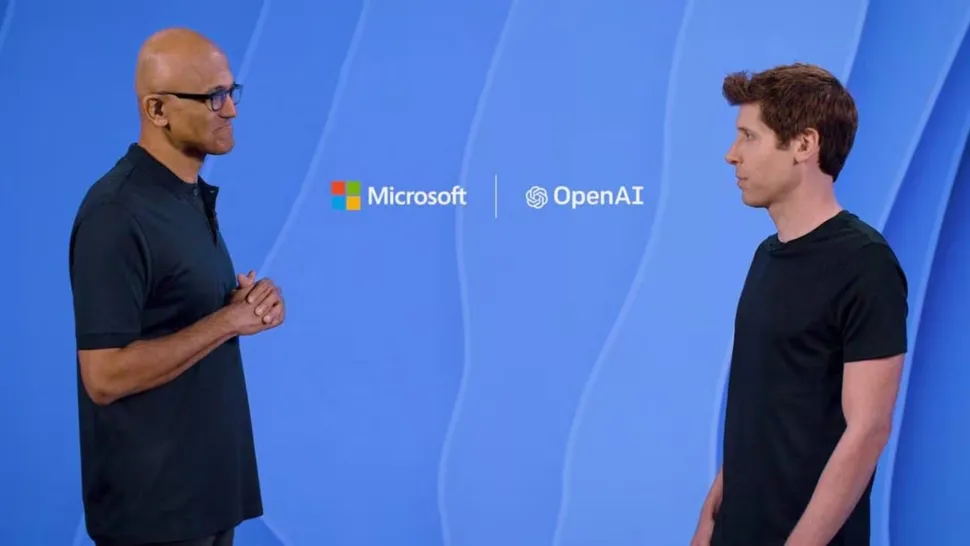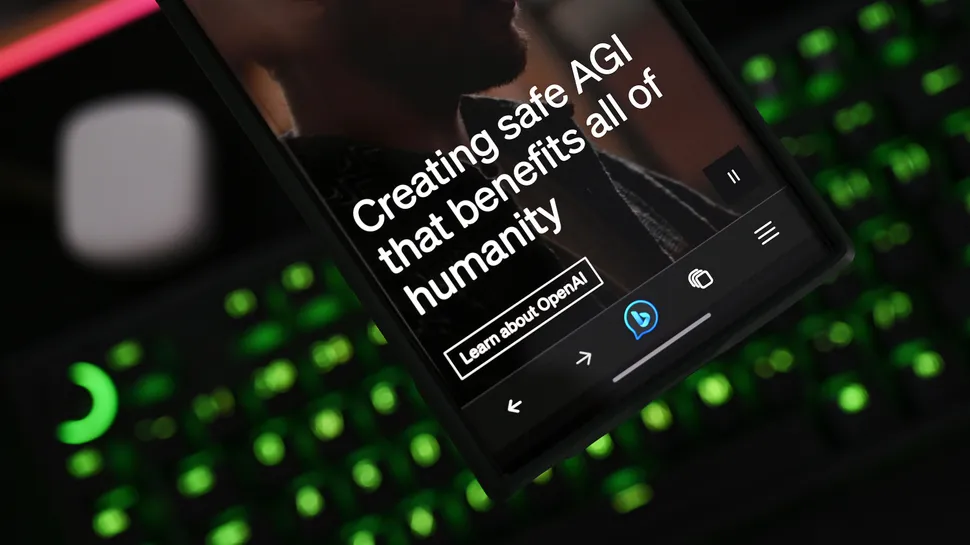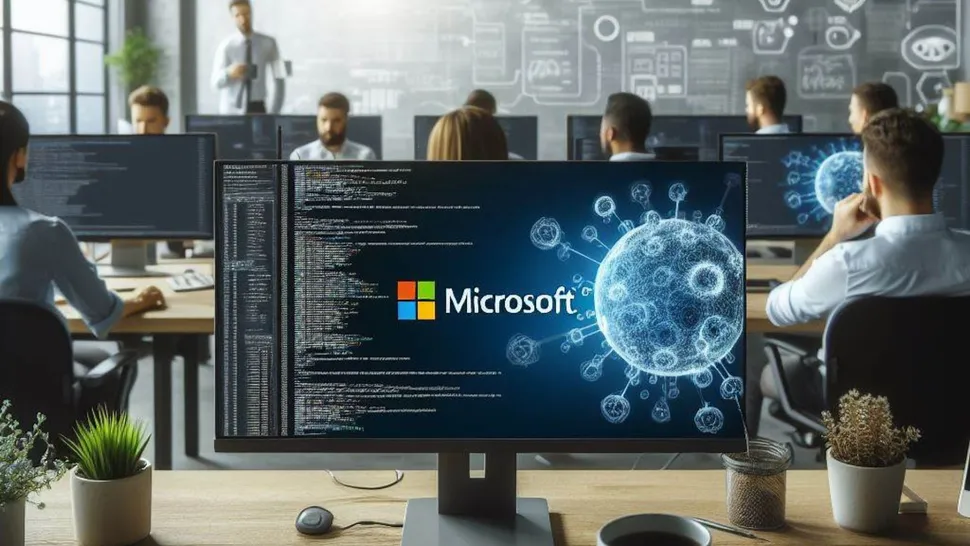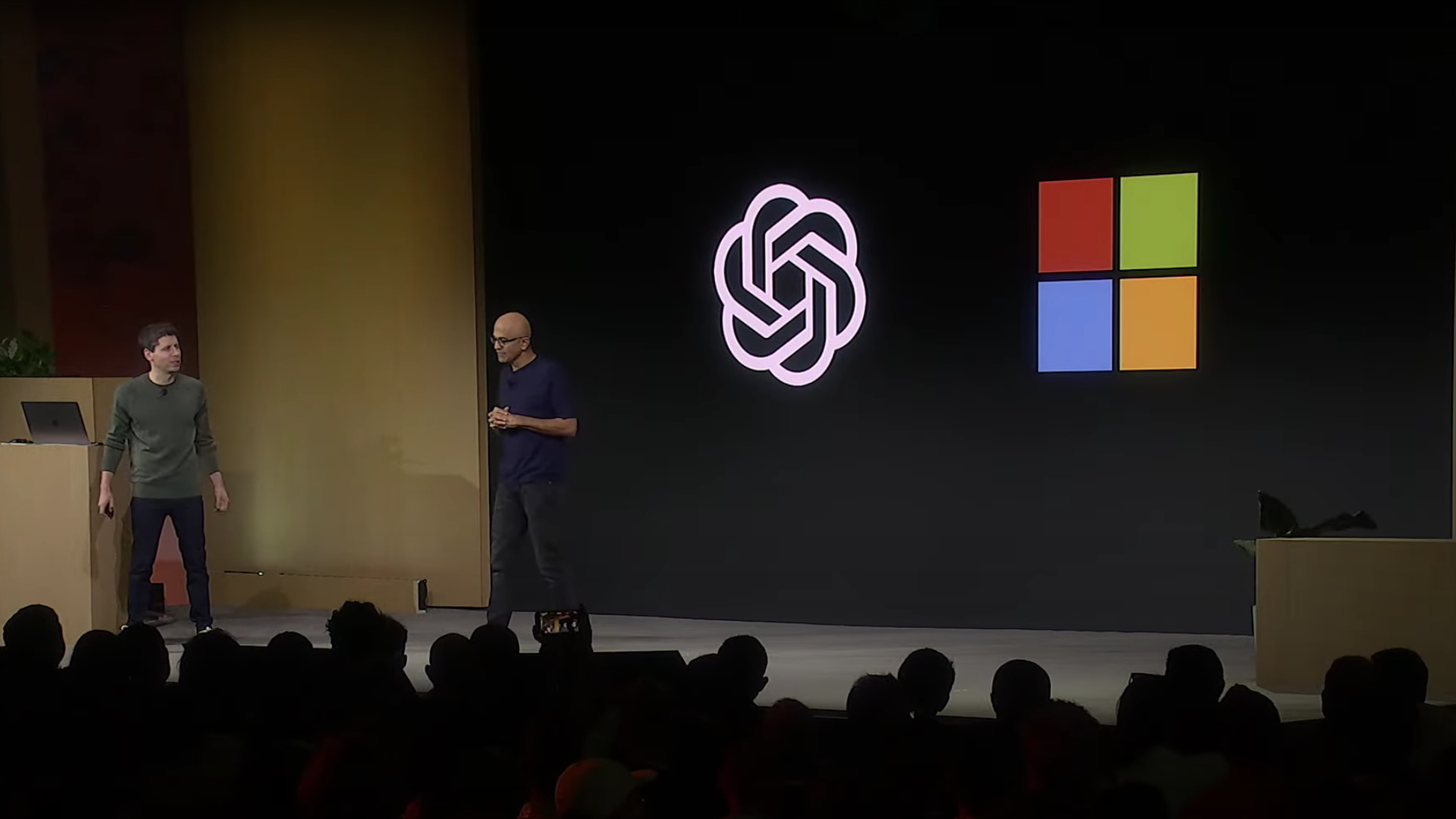Satya Nadella says Microsoft can run its AI projects even if OpenAI isn't in the picture.
Microsoft is placing all its bets on AI, especially after plunging a multi-billion dollar investment into OpenAI. And it seems to be paying off. Microsoft recently subdued Apple as the world's most valuable company after hitting $3 trillion in market capitalization, with market analysts attributing this success to its early investment and adoption of generative AI across its products and services.
Genesis: OpenAI's weekend-long fiasco

(Image credit: Bullfrag)
While everything might seem great on paper, Microsoft insiders recently complained about the complicated relationship the tech giant shares with OpenAI. Some indicated it's an overnight "glorified IT department for the hot startup." It comes on top of last year's OpenAI fiasco that led to CEO Sam Altman's firing and rehiring by the board of directors within a fortnight.
The insiders added that the multi-billion dollar partnership has negatively impacted Microsoft's AI department, which specializes in AI advances and development. Microsoft is reportedly more focused on its projects with OpenAI, which, according to a top executive who left the company because of the same issue, has contributed to the addition of more tombstones to the "Microsoft Graveyard," including Azure Cognitive Search, Azure AI Bot Service, and Kinect DK.
Since the bizzare events that led to Altman's firing and rehiring, it's like OpenAI opened a Pandora's box and can't seem to steer clear of problems that have been riddling it in the recent past. During the whole fiasco, Microsoft was relatively quiet, but rumors looming the air at the time suggested that the tech giant was ready to absorb any OpenAI staffers leaving the startup due to the issue.
In a letter drafted to the board of directors, the staffers gave an ultimatum requesting for Altman's immediate reinstatement as CEO, further stating that "OpenAI is nothing without its people." Failure to adhere to this request would have led to hundreds of employees walking out of OpenAI's doors.
At the time, Microsoft had already set up an AI department at its LinkedIn office in San Fransico to absorb the OpenAI staffers. Sam Altman and Greg Brockman were to sit at the helm and run the operations for the entire unit. But Microsoft recently announced an internal reorg placing products like Microsoft Edge, Bing, and Microsoft Copilot and a new Microsoft AI division which will be ran by Deep Mind co-founder, Mustafa Suleyman.
OpenAI under fire for abandoning its founding agreement and mission

(Image credit: Daniel Rubino)
When OpenAI was founded, its mission and vision were to ensure that generative AI advances and developments were easily accessible to everyone for free. In 2015, OpenAI reached out to Elon Musk with the same idea, but the tech startup has seemingly veered off this mission. This has consequently led Musk to file a lawsuit against OpenAI and CEO Sam Altman for "stark betrayal of the founding agreement" and opting to go the for-profit way.
He further criticized Microsoft and OpenAI's relationship, indicating:
"In reality, however, OpenAI, Inc. has been transformed into a closed-source de facto subsidiary of the largest technology company in the world: Microsoft. Under its new board, it is not just developing but is actually refining an AGI to maximize profits for Microsoft, rather than for the benefit of humanity."
Musk hopes the court will rule in favor and compel OpenAI to revert to its original mission and vision. But where would this leave Microsoft, which holds a 49% stake in the earnings of OpenAI's for-profit arm?
We were very confident in our own ability. We have all the IP rights and all the capability. I mean, look, if tomorrow OpenAI disappeared, I don’t want any customer of ours to be worried about it, quite honestly, because we have all of the rights to continue the innovation, not just to serve the products. But we can go and just do what we were doing in partnership, ourselves, and so we have the people, we have the compute, we have the data, we have everything.
Microsoft CEO, Satya Nadella

(Image credit: Image Creator from Designer | Kevin Okemwa)
Microsoft CEO Satya Nadella shared the sentiments highlighted above last year after being blindsided by Sam Altman's firing. This presents a form of assurance and dominance in the AI landscape. It also potentially asserts Microsoft's continued investment in the technology even if it's forced to sever ties with OpenAI.
Admittedly, Microsoft Copilot and ChatGPT have equally experienced several issues over the past few months, including inaccuracy, with some users blatantly indicating the chatbots have gotten dumber, and some don't even find these tools useful. While these are major concerns, Elon Musk says we're on the verge of the biggest technology revolution with AI, but there won't be enough power by 2025.



3175x175(CURRENT).thumb.jpg.b05acc060982b36f5891ba728e6d953c.jpg)
Recommended Comments
There are no comments to display.
Join the conversation
You can post now and register later. If you have an account, sign in now to post with your account.
Note: Your post will require moderator approval before it will be visible.